Are you considering elevating your business with cloud services? We understand that navigating the complex landscape of cloud solutions can seem daunting, but that's where we come in. Our tailored cloud services proposal is designed to simplify the process and highlight the benefits specific to your needs. Join us as we explore how our innovative solutions can transform your operations â read more to discover the game-changing advantages awaiting your organization!

Executive Summary
Cloud services, such as Infrastructure as a Service (IaaS) and Software as a Service (SaaS), offer scalable computing resources tailored for businesses like yours. The global cloud computing market reached a value of approximately $480 billion in 2022 and is expected to grow significantly in the coming years. By leveraging platforms like Amazon Web Services (AWS) or Microsoft Azure, organizations can enhance operational efficiency, reduce IT costs, and improve data security. Implementing cloud solutions enables access to advanced analytics tools and artificial intelligence capabilities, facilitating better decision-making. Additionally, transitioning to cloud services can support remote work environments, ensuring continuity and collaboration among teams dispersed across cities like New York, London, or Tokyo.
Solution Overview
Cloud services provide scalable computing resources over the internet, enabling businesses to enhance operational efficiency. Solutions can include Infrastructure as a Service (IaaS), offering virtualized computing environments, or Software as a Service (SaaS), delivering applications via the cloud. Key players in the market, such as Amazon Web Services (AWS) and Microsoft Azure, dominate with extensive global data center networks, ensuring low-latency access to services worldwide. Security features, including encryption protocols and multi-factor authentication, protect sensitive data in transit and at rest. Additionally, flexible pricing models empower organizations to optimize costs by paying only for the resources they utilize, adapting to seasonal fluctuations or unexpected workloads. With integration capabilities for existing systems, cloud solutions streamline operations and support digital transformation initiatives across industries.
Benefits and ROI
Cloud services offer numerous benefits, including scalability, cost savings, and enhanced collaboration. Companies can quickly adjust resources based on demand, accommodating growth or seasonal fluctuations without significant upfront investment. For example, utilizing Infrastructure as a Service (IaaS) allows businesses to pay only for what they use, with estimates showing potential savings of 20-30% compared to traditional on-premises infrastructure costs. Enhanced collaboration is fostered through cloud applications, enabling teams to access files and tools from any location, facilitating remote work environments. Moreover, cloud solutions often provide automatic updates and security features, reducing IT maintenance burdens and improving data protection. The return on investment (ROI) can be significant, with studies indicating that organizations leveraging cloud services report productivity increases of up to 22%.
Pricing and Terms
Cloud service pricing models can vary significantly based on several factors. The most common structure includes (cloud service tier) Basic, Standard, and Premium options, typically starting at $10, $30, and $80 per month respectively. Each tier offers a different level of storage capacity (ranging from 50 GB to 1 TB), bandwidth allocation, and features such as data backup and customer support. Terms can include monthly or annual billing, often providing discounts for long-term commitments, such as a 15% reduction for yearly subscriptions. Additionally, a free trial period, usually lasting 30 days, allows users to evaluate services without financial risk. Legal terms, including service level agreements (SLAs), often specify uptime guarantees, customer support response times, and consequences for breaches, contributing to overall network reliability and user confidence.
Implementation Timeline
Implementation timelines for cloud services projects outline critical stages in deployment, including phases like planning, migration, and optimization. Typically, the planning stage lasts 2-4 weeks, involving detailed assessments of current infrastructure, such as on-premises servers or existing databases. Migration, which can range from 1 to 3 months, focuses on transferring applications and data to cloud platforms such as Amazon Web Services (AWS) or Microsoft Azure. Testing phases ensure complete functionality post-migration, taking an additional 2-6 weeks to confirm performance and security standards. Finally, optimization, often spanning several months, aims at refining cloud resource usage and cost management strategies for ongoing operational efficiency.
Letter Template For Cloud Services Proposal Samples
Letter template of cloud services proposal for remote workforce solutions
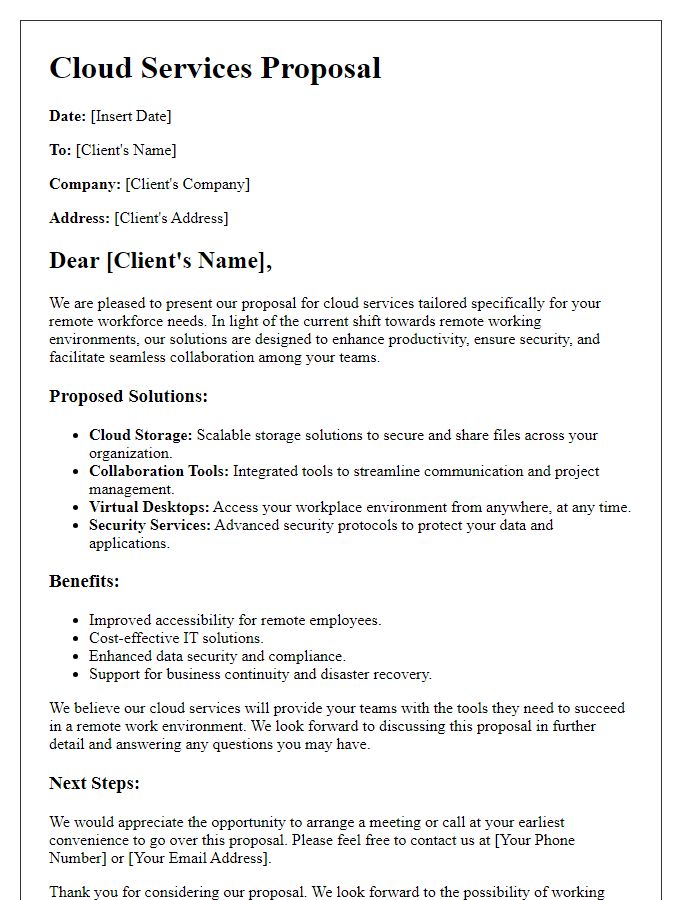

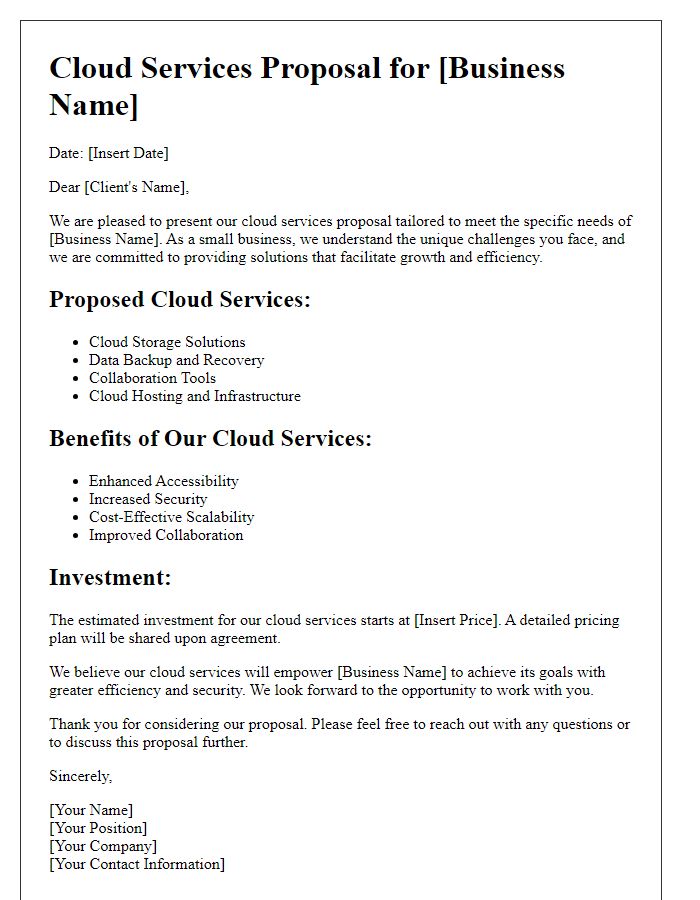
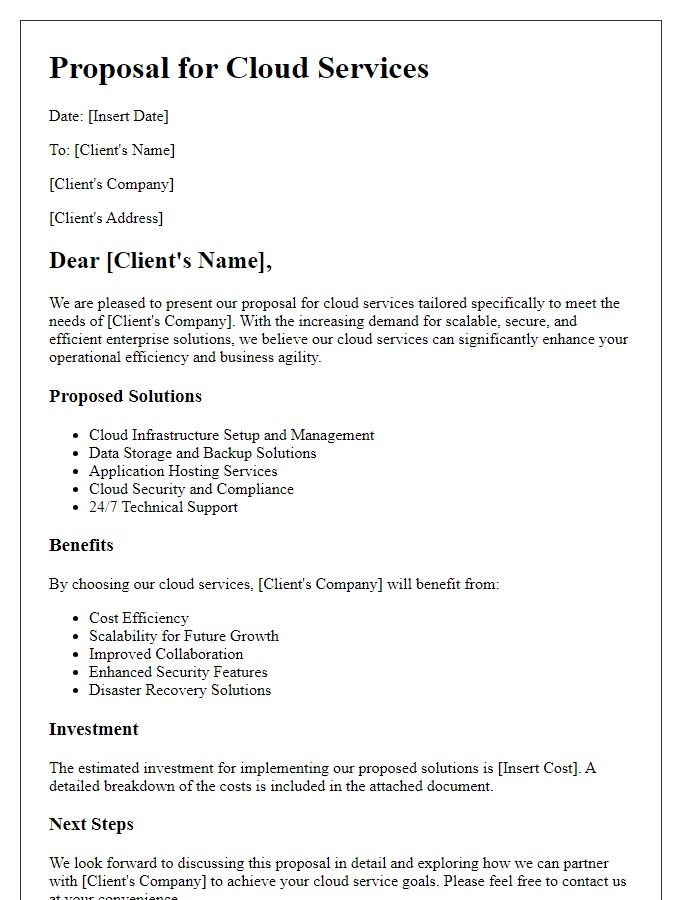
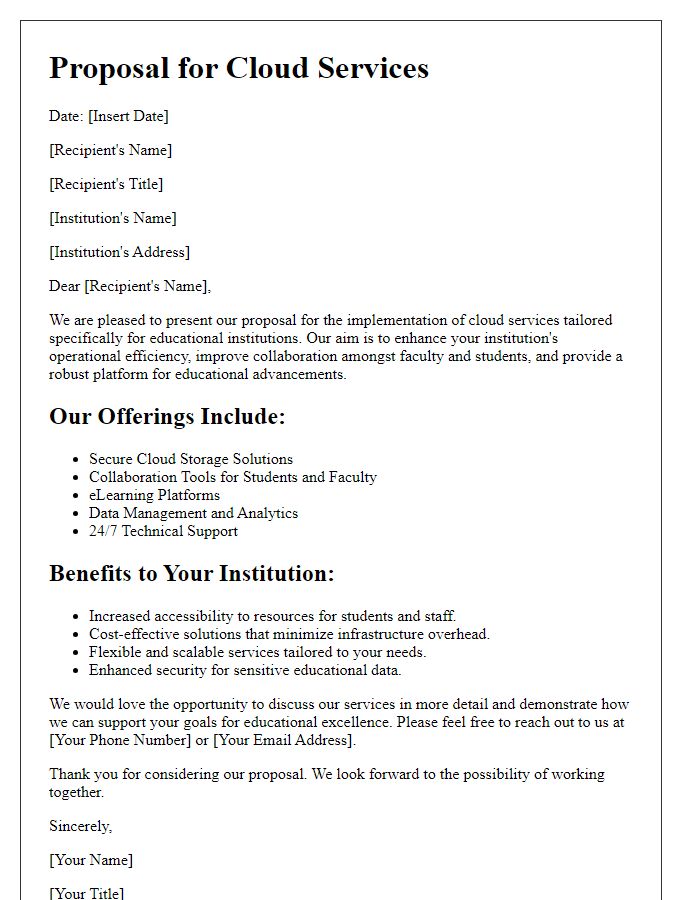
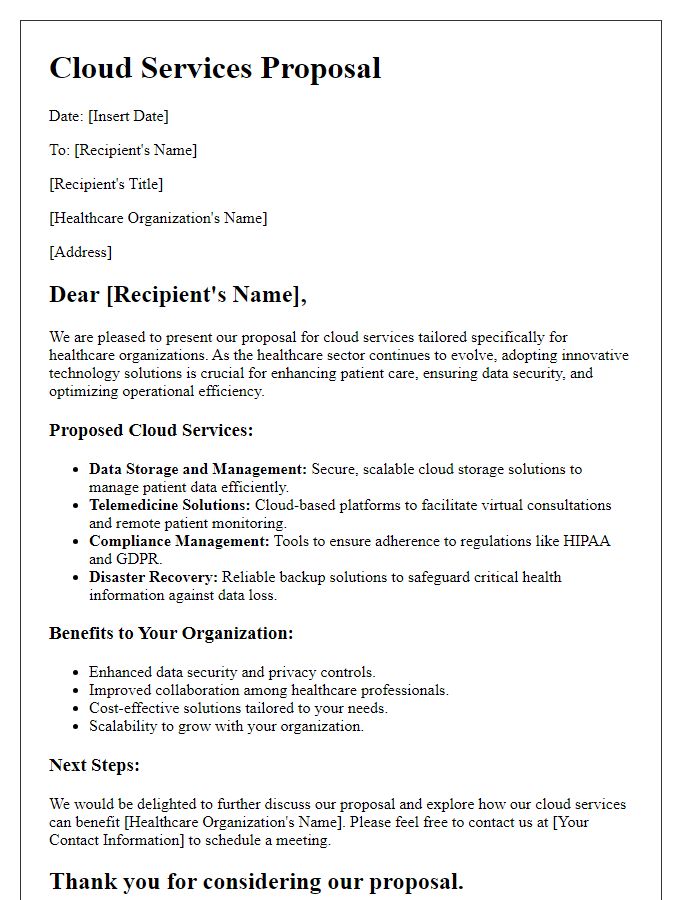
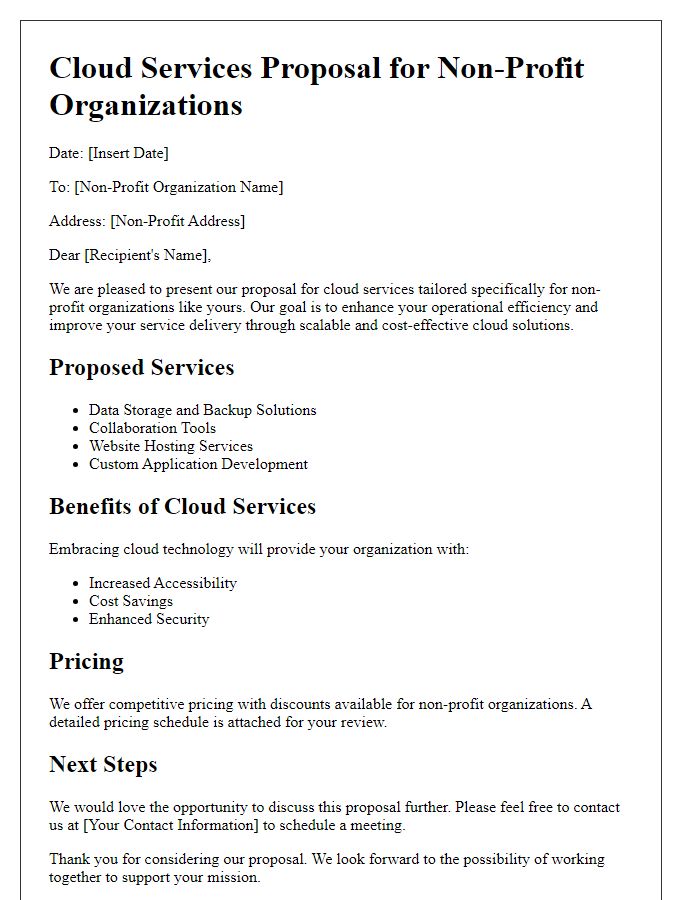
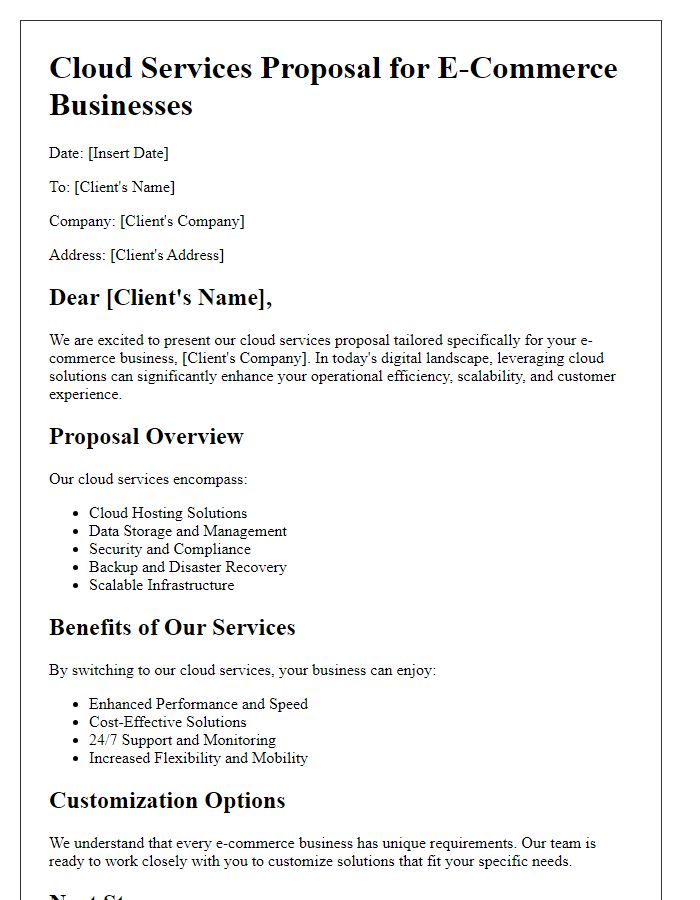
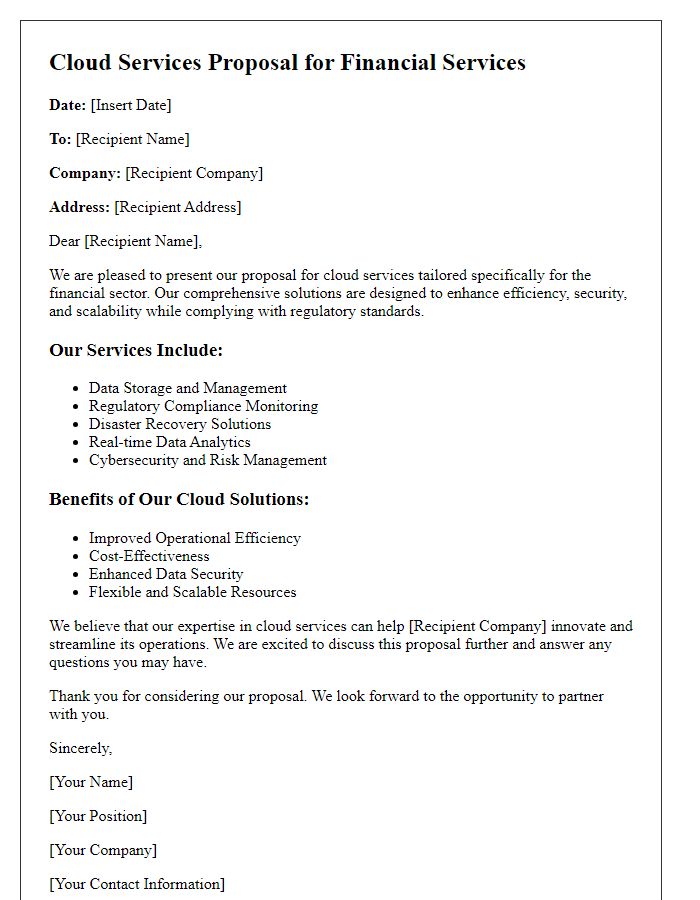
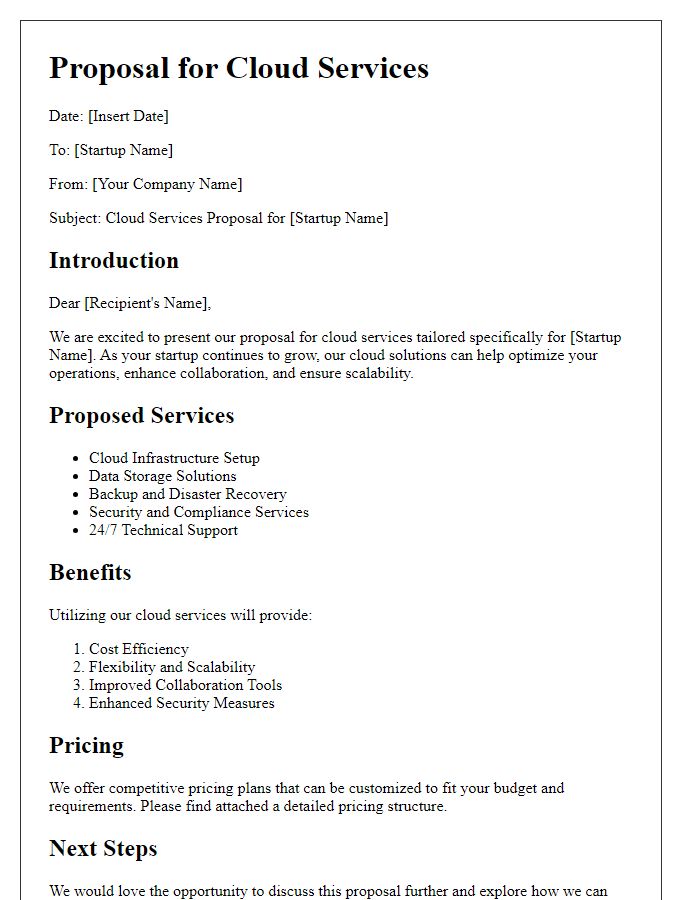
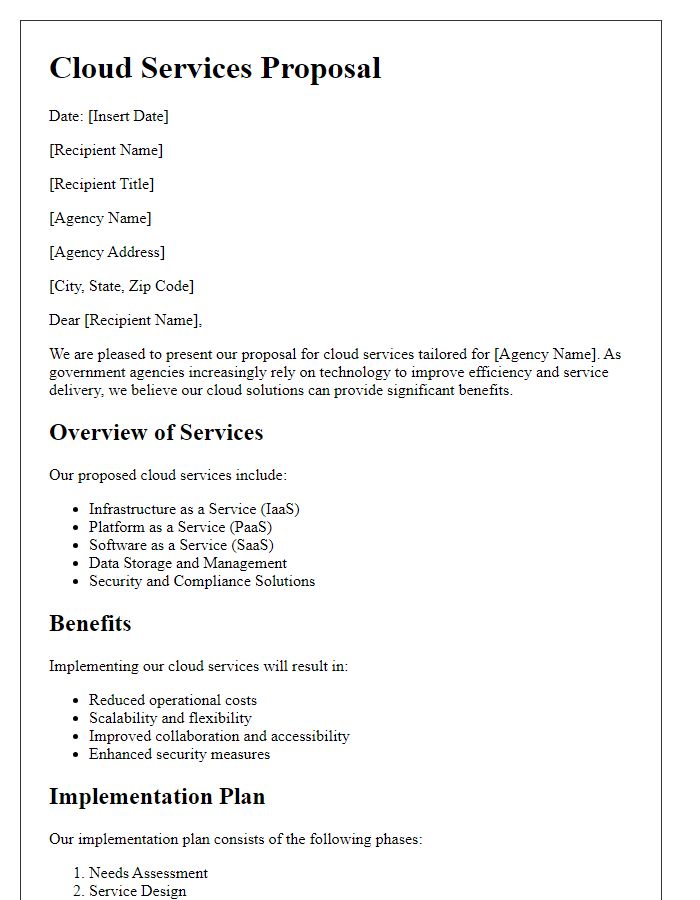


Comments